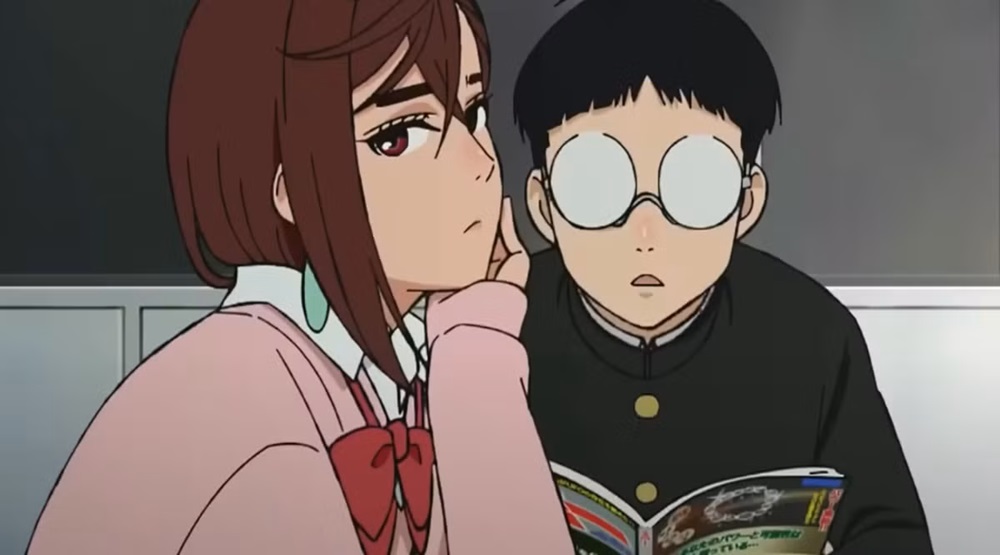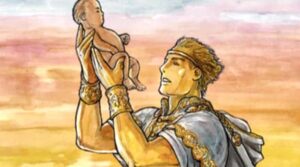Ken Takakura Dandadan: His Legacy and Dandadan Connection

Ken Takakura. The name alone conjures images of rugged heroes, distant stares, and gritty yakuza dramas. Born on February 4, 1931, in Fukuoka, Japan, Takakura wasn’t just a man of action on the screen—he was a symbol of grit and quiet strength. His films? Well, they’re legendary. But let’s talk about something you might not expect: Dandadan. Yep, you read that right. There’s more to this actor’s legacy than just his movie roles, and it’s tied to the world of manga. Stick with me—this gets good.
Ken Takakura’s Early Life: More Than Just a Tough Guy
Before Takakura became a name on every action film poster, he was just another kid from Fukuoka, trying to find his way. His path wasn’t exactly straight; in fact, it was more like a maze of unexpected turns. He first set his sights on law school. Yeah, law. He had visions of solving disputes and wearing suits, but something about the stage kept calling him. Maybe it was the allure of the lights or the drama, but Tokyo eventually became his new home. After training with Toho studios, Takakura was launched into stardom.
And, wow, did he hit the ground running. His breakout role came in The Wolves (1971), where he played an outlaw who, honestly, made being a bad guy look hella cool. It wasn’t just the tough-guy persona he nailed; it was the depth behind it. He wasn’t just the guy with the grimace and the gun. He made those roles more than just screen time—they were a whole vibe.
Anyway, here’s the kicker: He wasn’t just an action star. He could pull off the brooding, quiet roles as well as the hard-hitting dramas. It’s like watching someone who knows exactly when to speak and when to just… let the silence do the talking.
The Ken Takakura Effect on Japanese Cinema
Let’s just say this: Ken Takakura didn’t just act. He changed how we saw Japanese cinema. I mean, when you think of a stoic hero, you think Takakura. He had this knack for playing characters that were, well, sort of like a silent storm. His characters were minimalists in a world of chaos. That was his brand.
Take The Yakuza (1974). There he was, again, bringing this intensity to a genre that was filled with loud personalities. But Takakura? He didn’t need to scream. His stare was enough. He became the poster child for the “quiet but deadly” archetype. And let’s be real—who doesn’t like a tough guy who doesn’t have to talk much? His characters weren’t just fighting against bad guys; they were wrestling with their own sense of honor, loyalty, and all those heavy Japanese ideals.
It’s hard to explain unless you’ve seen one of his films, but once you’ve witnessed Takakura’s presence on screen, it stays with you. It’s like that moment when you hear a really good song and you can’t quite shake it off for days.
From Film to Manga: The Unlikely Dandadan Connection
Now, let’s get to the fun part: Dandadan. Okay, okay, I know what you’re thinking. Ken Takakura and Dandadan? How does that even make sense? Well, buckle up.
In case you’ve been living under a rock, Dandadan is a wicked popular manga series created by Yukinobu Tatsu. It’s got that perfect blend of supernatural drama, quirky humor, and enough action to make you wish you were the one wielding the weird powers. But here’s the real kicker—Dandadan’s protagonist, with his fierce, no-nonsense attitude, is pretty much a living embodiment of Takakura’s most iconic characters.
It’s not a direct copy or anything (I mean, the manga has aliens and spirits and all that), but the vibe? Totally. The protagonist of Dandadan fights tooth and nail for justice, much like Takakura’s film characters. Both are driven by an unshakeable code, and both face off against forces far stronger than themselves. If you’ve watched enough of Takakura’s movies, you’ll notice the familiar sense of quiet confidence and grit that both share.
And let’s be real: Takakura’s persona was so iconic, it was bound to inspire a modern version in Dandadan. The parallels are uncanny. I mean, who wouldn’t want to watch a manga hero channel their inner Takakura?
Breaking Down the Dandadan Spirit: More Than Just Cool Fights
Now, let’s talk about what makes Dandadan special, and why it’s so cool that it’s connected to Ken Takakura. It’s not just the action or the supernatural bits—it’s the themes that run through both Takakura’s films and the manga. Both of them dive deep into honor, duty, and personal sacrifice. There’s this quiet resilience in the face of overwhelming odds.
I mean, think about it. Takakura’s films often show characters who are, frankly, up against a system that’s broken. But they don’t quit. They keep fighting, even when the odds seem impossible. And guess what? Same goes for the characters in Dandadan. That’s not by accident.
Dandadan’s protagonist, like Takakura’s characters, faces a world that’s totally out of whack. Yet, in each episode, you get this undying urge to stand up for what’s right—even when the universe seems to be laughing in your face. So yeah, you could say there’s a little Ken Takakura in Dandadan’s DNA.
Ken Takakura Dandadan: A Legacy That Won’t Fade
Ken Takakura passed away in 2014, but his legacy? Still going strong. And the cool thing is, you can still feel his influence everywhere, from the film industry to manga like Dandadan. It’s like that little whisper in the back of your mind reminding you that honor and integrity aren’t just things of the past—they’re things worth fighting for.
The connection between Takakura and Dandadan isn’t just a fun comparison—it’s a reflection of how his legacy has shaped Japanese pop culture. In a way, Dandadan’s fight for justice mirrors Takakura’s own cinematic journey. His presence in Dandadan is a silent nod to a legend who will never be forgotten.
Why the Ken Takakura Dandadan Legacy Matters
Alright, let’s wrap this up. You might be wondering, “Why does this matter?” Simple. It’s not just about seeing the past meet the present. It’s about understanding how certain values—like resilience, honor, and fighting for what’s right—are timeless. Those values live on in Dandadan, just like they lived on in Takakura’s films. It’s not just entertainment; it’s a cultural bridge that connects generations.
My neighbor, Greg, who swears he’s watched every Ken Takakura movie ever, always says this: “Ken Takakura’s not just a guy on the screen. He’s a symbol of something bigger.” And y’know what? Greg’s right. Takakura’s influence stretches far beyond film, and Dandadan is proof of that.




